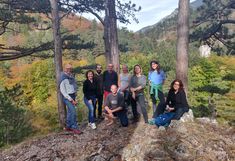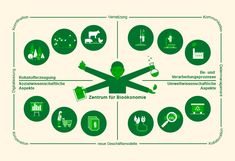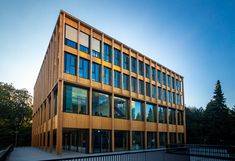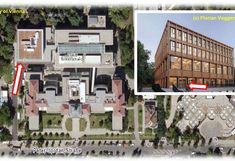About us
The Centre for Bioeconomy at BOKU
The University of Natural Resources and Life Sciences in Vienna (BOKU) covers almost all areas of the bioeconomy and sees this as a unique selling point in Europe. At BOKU, bioeconomy is part of the programme: more than 80% of the institutes conduct research in the field of bioeconomy and also offer training in this area.
The focus has traditionally grown. BOKU has always covered natural sciences, technology, economics and social sciences. In order to coordinate the comprehensive activities within the university, to promote internal and external cooperation and collaboration as well as communication, a self-evaluation of bioeconomy research at BOKU as well as a statement of the BOKU ethics platform were first carried out and a steering group of BIOS Science Austria was founded until finally in May 2019 the Centre for Bioeconomy - subordinate to the Vice Rectorate for Research - was established. The aim of the centre is to initiate and support bioeconomy-relevant activities in research, education and innovation.
Our activities
Our activities
The Centre for Bioeconomy plays an important role in this context through increased
- Cooperation,
- Collaboration,
- Communication and
- Coordination
of all bioeconomy-relevant activities and institutions within and outside BOKU at national and international level. The most important cooperations at various levels can be read here.
The Centre for Bioeconomy at BOKU sees its role in supporting and promoting research activities in the field of bioeconomy, initially in all departments and institutes of the university, but also towards external partners both at academic and institutional level in Austria and Europe.
The main objective of our work is to highlight the importance of researching and applying bioeconomic principles in all possible fields of study in order to develop innovative and resilient ideas to combat the climate crisis and ensure a good life for all.
One of our main concerns is to raise society's awareness of the benefits of the bioeconomy and to communicate this to the outside world (Video). For this reason, there is also a close link to the Sustainable Development Goals (SDGs), as some of their objectives can be pursued and enforced together. The Centre for Bioeconomy thus contributes to solving societal challenges such as climate change, scarcity of raw materials, feeding a growing population, maintaining the vitality of rural areas.
The way to us
We are on the 2nd floor of the Ilse-Wallentin-House, which opened in October 2020 and is also a showcase example in terms of the bioeconomy. Apart from a concrete core, this low-energy building consists entirely of prefabricated wooden elements and thus stores around 1,000 tonnes of CO2 from the atmosphere.




